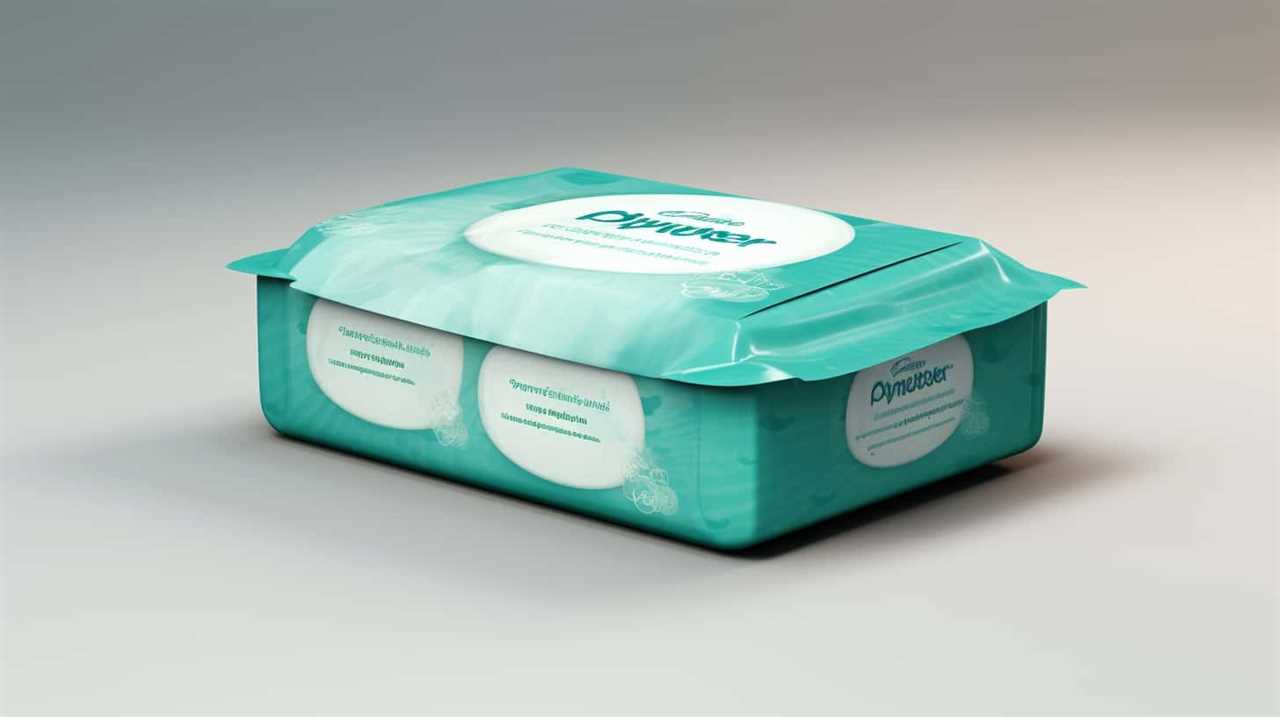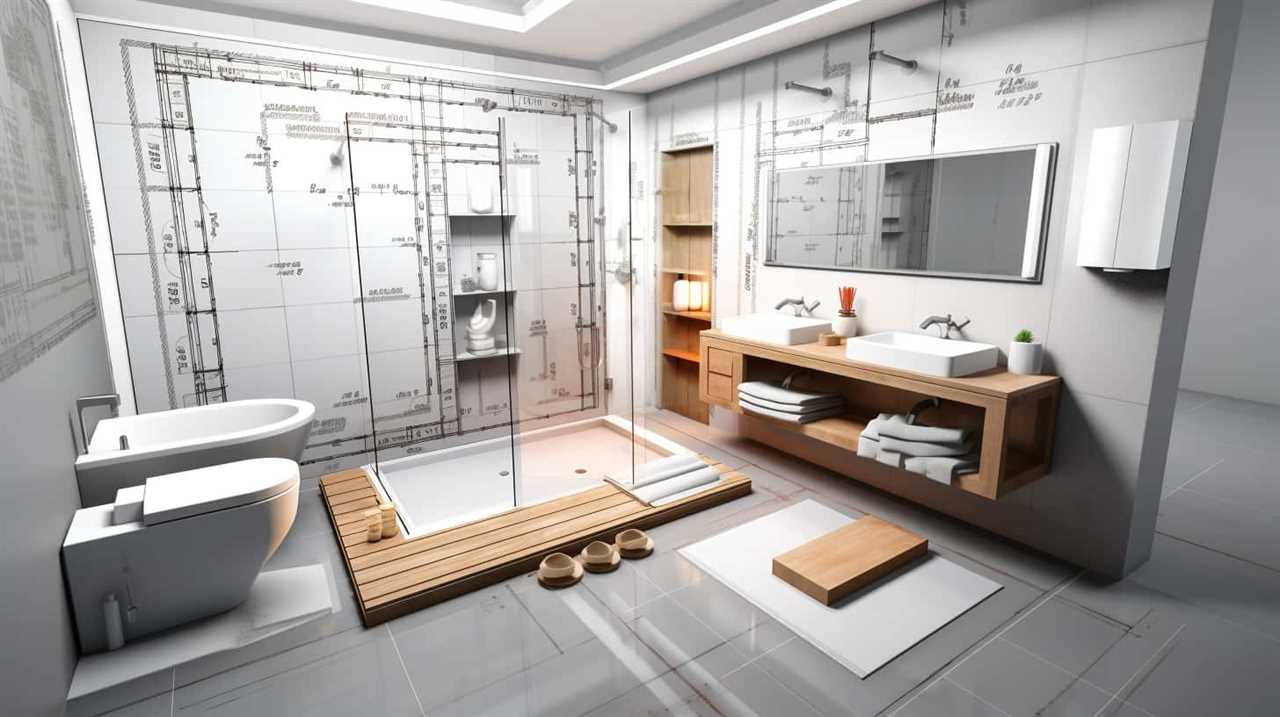Attention, everyone!
Have you ever heard the old wives’ tale that says we shouldn’t take a bath right after chowing down? Well, we’re here to bust that myth wide open.
In this article, we’ll dive into the scientific evidence behind bathing after a meal. We’ll explore how our digestive system responds, the impact on our blood pressure, and the best time to indulge in a relaxing soak.
So grab your rubber ducky and let’s get to the bottom of this bathing conundrum!

Key Takeaways
- Bathing after eating does not negatively affect digestion.
- Taking a bath can relax the muscles in the digestive tract and promote better blood circulation in the digestive system.
- Bathing can enhance the overall digestion process and help reduce stress, which hinders digestion.
- It is advisable to wait at least 30 minutes after a meal before taking a bath to allow blood pressure to stabilize.
The Myth of Bathing After Eating
After extensive research, we’ve discovered that the belief in the necessity of avoiding bathing immediately after eating is nothing more than a widely spread myth. There’s no scientific evidence to support the claim that bathing after a meal negatively affects digestion.
In fact, the digestive process is primarily controlled by the autonomic nervous system and the muscles in the gastrointestinal tract, not by external factors like bathing. Cultural beliefs and practices may play a role in perpetuating this myth, as certain cultures have traditional customs that discourage bathing after meals.
However, it’s important to rely on scientific evidence rather than cultural beliefs when evaluating the effects of bathing on digestion.
Digestive System Response to Bathing
Continuing our exploration of the myth of avoiding bathing after eating, let’s now delve into the digestive system’s response to bathing.

Many people believe that taking a bath immediately after a meal can interfere with the process of digestion. However, scientific evidence suggests otherwise.
The digestive system is a complex network of organs and processes that break down food, absorb nutrients, and eliminate waste. Taking a bath after eating doesn’t have any negative effects on these processes.
In fact, bathing can have several benefits for post-meal digestion. Warm water can help relax the muscles in the digestive tract, promoting better blood circulation and enhancing the overall digestion process. Additionally, a bath can help reduce stress, which is known to hinder digestion.
Impact on Blood Pressure
We frequently experience changes in blood pressure after taking a bath following a meal. This phenomenon is known as postprandial hypotension, which refers to a decrease in blood pressure after eating. Blood pressure regulation is a complex process involving various physiological mechanisms, such as the autonomic nervous system and the release of hormones.

When we eat, blood is redirected to the digestive system to aid in the absorption and digestion of food. This causes a temporary decrease in blood flow to other parts of the body, including the brain. Taking a bath immediately after a meal can further exacerbate this decrease in blood pressure. The warm water causes blood vessels to dilate, leading to a decrease in systemic vascular resistance and further lowering blood pressure.
As a result, it’s advisable to wait for a period of time after eating before taking a bath to allow blood pressure to stabilize. Transitioning into the subsequent section about ‘timing matters: best time to take a bath’, it’s important to consider the optimal timing for bathing to minimize the potential impact on blood pressure.
Timing Matters: Best Time to Take a Bath
To optimize the potential impact on blood pressure, it’s important to consider the ideal timing for taking a bath.
One optimal time for bathing is before bedtime, as it offers several benefits for sleep quality. Bathing before bedtime can help relax the body and mind, promoting a better transition into sleep. The warm water raises body temperature, and when it subsequently decreases, it signals the body that it’s time to sleep.

Additionally, a warm bath can alleviate muscle tension and relieve stress, further enhancing the quality of sleep. Research has shown that individuals who take a bath before bed experience improved sleep efficiency, increased total sleep time, and reduced awakenings during the night.
Therefore, if your goal is to optimize your sleep quality, consider incorporating a relaxing bath into your bedtime routine.
Tips for a Safe Post-Meal Bath
Taking a bath after a meal requires caution to ensure safety and comfort. Here are some tips to follow for a safe post-meal bath:
- Wait at least 30 minutes: It’s recommended to wait for at least 30 minutes after a meal before taking a bath. This allows digestion to begin and prevents any discomfort or disturbance to the digestive process.
- Avoid hot baths: Opt for lukewarm or slightly warm water instead of hot water. Hot water can increase blood flow to the skin, diverting it from the digestive system and potentially causing indigestion.
- Gentle movements: Engage in gentle movements during the bath, such as stretching or light walking, to aid digestion. Avoid vigorous activities that may hinder the digestive process.
- Practice good hygiene: Ensure proper hygiene practices by washing your hands thoroughly before and after the bath. Use mild, gentle soaps or cleansers to avoid irritation to the skin.
Frequently Asked Questions
Can Taking a Bath Immediately After Eating Cause Indigestion or Stomach Discomfort?
Taking a bath immediately after eating may cause indigestion or stomach discomfort. It is recommended to wait at least 30 minutes after a meal before bathing to allow for proper digestion and post-meal hydration.

Is It True That Bathing After a Meal Can Lead to a Decrease in Blood Flow to the Stomach and Hinder the Digestion Process?
Bathing myths often claim that bathing after eating hinders digestion due to decreased blood flow to the stomach. However, there is no scientific evidence to support this claim. Digestion is mainly influenced by factors like diet and overall health.
Does the Temperature of the Bath Water Affect the Digestion of Food in Any Way?
The temperature of bath water can have various effects on digestion. Hot water can increase blood flow to the stomach and enhance digestion. Bathing before eating can also have benefits, such as promoting relaxation and reducing stress.
Are There Any Specific Foods That Should Be Avoided Before Taking a Bath to Prevent Any Adverse Effects on Digestion?
Avoiding certain foods before taking a bath can prevent adverse effects on digestion. We explored the impact of bathing after a meal on nutrient absorption, and found that it is best to wait a while before bathing.
Can Taking a Bath After a Meal Affect Nutrient Absorption by the Body?
Taking a bath immediately after eating may not be ideal for optimal nutrient absorption. It could potentially affect metabolism and the body’s calorie burning process. It is recommended to wait a certain time gap before bathing after a meal.

Conclusion
In conclusion, it’s a myth that bathing after eating has negative effects on digestion. The digestive system adapts to changes in body temperature during bathing, and there’s no evidence to suggest that it impairs the digestion process.
However, it’s important to note that taking a hot bath can temporarily increase blood pressure. To ensure a safe post-meal bath, it’s recommended to wait at least 30 minutes after eating before taking a warm bath.









